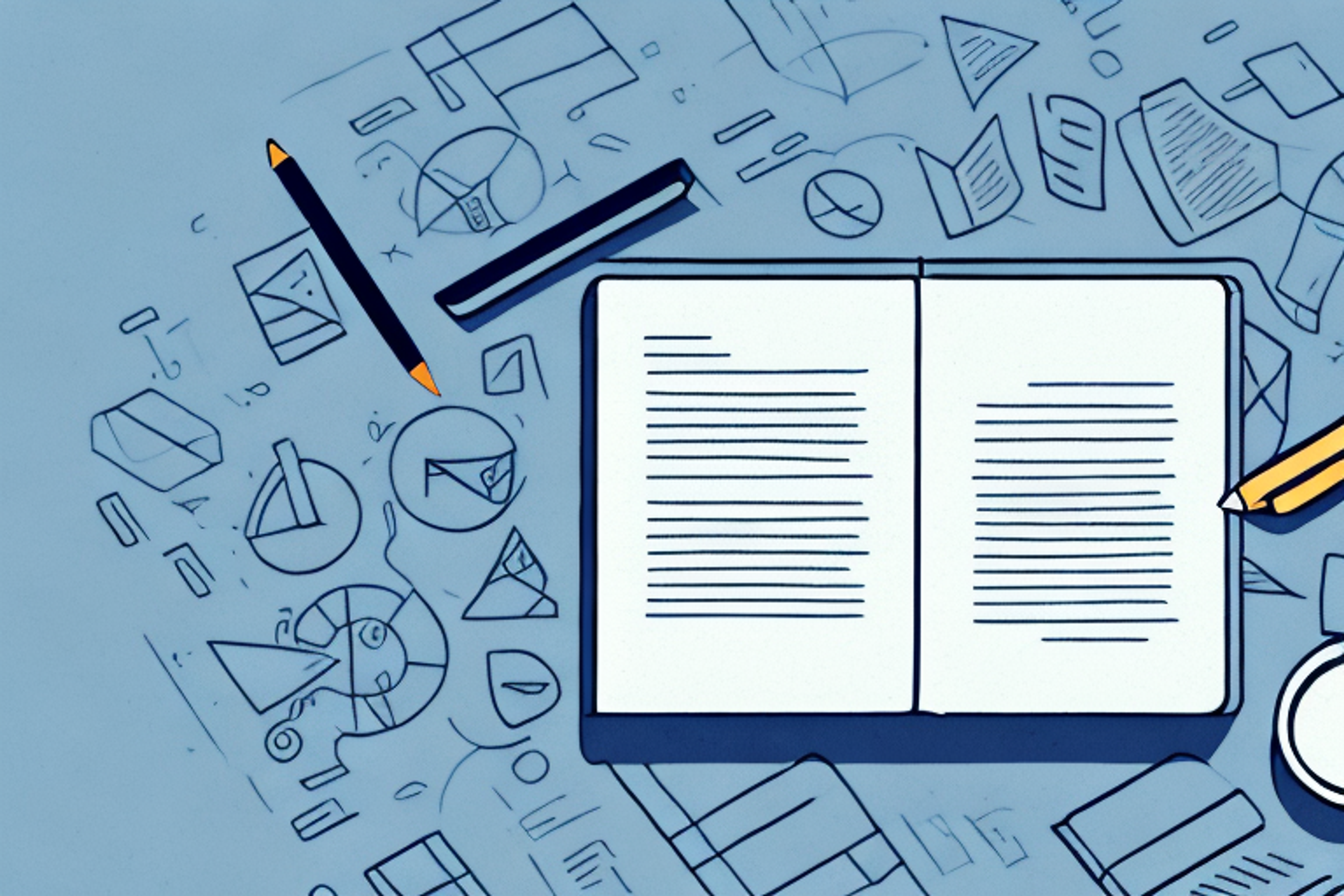The Most Common Technical Product Manager Interview Questions -- and How to Answer Them
Are you preparing for a technical product manager interview? This article covers the most common questions you may encounter and provides tips on how to answer them effectively.
Posted March 6, 2025

Table of Contents
The Role of a Product Manager
A product manager plays a very important role in the product development process, responsible for defining and delivering products that meet customer needs and align with the company’s strategic goals. Product managers work closely with cross-functional teams, including engineering, design, and marketing, to ensure the product is developed, launched, and managed successfully.
A large part of their role involves gathering and incorporating user feedback, conducting user research, and analyzing data to make informed product decisions. By understanding the market and the customer, product managers steer product development in the right direction and ensure its success.
What Is a Technical Product Manager Interview?
A Technical Product Manager (PM) interview is a part of the product manager interview process. Unlike standard product management interviews, a technical PM interview emphasizes your understanding of technology, and the technical challenges involved in product development.
In a technical product manager interview, you can expect questions that may test your ability to:
- Collaborate with engineers: You'll need to explain how you work with development teams to translate product strategy into technical specifications.
- Understand technical concepts: Expect questions about APIs, databases, or cloud infrastructure and how you can explain them to non-technical stakeholders.
- Solve technical challenges: Problem-solving questions may ask you to optimize system performance or make decisions about trade-offs in features.
- Assess technical trade-offs: You’ll need to show how you evaluate trade-offs between speed, scalability, cost, and user impact.
These interviews are common at tech companies with complex software or hardware products. Candidates should prepare by brushing up on technical skills and familiarizing themselves with common technical product manager interview questions.
How to Prepare for Your Technical PM Interview
1. Do your homework
Research the company’s products, services, industry trends, and competitors. Understand the company's overall strategy and how the product you’ll manage fits into it. Brush up on relevant technical knowledge, such as programming languages, database management, and cloud computing.
2. Prepare anecdotes
Prepare specific examples from your past experience that demonstrate your problem-solving skills, leadership, accomplishments, and technical skills in previous roles. If you have technical experiences to draw from, you can better convey your competence for future roles.
3. Practice explaining technical concepts
Practice explaining technical concepts to non-technical people. Demonstrate how you’ve effectively communicated across different teams, such as product, engineering, and design, to keep everyone aligned in the product development process. Practice for your technical PM interview with one of our top-tier coaches here!
The Most Common Technical Product Manager Interview Questions
To help you get a better sense of what to expect, here are some example technical product manager interview questions:
API Design and Implementation
- How would you design an API for a new feature that integrates with multiple product lines in your company?
- Explain your process for ensuring the API aligns with the product roadmap and supports the product vision.
System Architecture and Scalability
- Describe how you would architect a system to support a successful product launch for a target market with millions of users.
- What technical considerations would you prioritize, and how would you align them with the product management team and executive team?
Data-Driven Decision Making
- Provide a specific example of how you used data analysis to influence product strategy or prioritize product features.
- What tools or techniques did you use to make a data-driven decision, and how did you validate your approach?
Technical Trade-Offs and Prioritization
- In a scenario where a development team must balance technical debt against delivering a new feature, how would you facilitate the decision-making process?
- What frameworks or product management practices would you employ?
Customer-Centric Product Management
- How do you integrate user feedback and insights from user research into the development process?
- Can you share a specific example of how you adjusted a product idea based on competitive analysis or customer feedback?
Read: The 50 Most Common Product Manager Interview Questions (With Sample Answers) | Leland
Answers to Technical Product Manager Interview Questions
To succeed in your interview, it’s essential to not only understand the questions but also know how to answer them effectively. Here are strategies to answer some common technical PM interview questions:
1. What programming languages do you know, and how have you applied them in product management?
Focus on the candidate’s technical skills and real-world applications of programming to solve product challenges.
Example Question: “Which programming languages do you know, and can you share a specific example of how you used one to optimize a product feature or workflow?”
Example Answer: "I’m proficient in Python, JavaScript, and SQL. In my previous role, I used Python to automate data analysis for a customer feedback dashboard. By scripting a process to parse and analyze feedback from thousands of surveys, I identified a key issue in our onboarding flow, which was causing a 20% drop-off rate.
Using this insight, I collaborated with the design team to rework the flow, resulting in a 15% improvement in user retention. This example highlights how programming can directly impact product success by streamlining problem identification and resolution."
2. How do you handle missing data in large datasets, and what strategies do you use to ensure accurate analysis?
This question tests knowledge of data cleaning, statistical methods, and decision-making for large-scale data.
Example Question: “Tell me about a time you dealt with a dataset that had missing values. How did you address it, and what was the impact?”
Example Answer: "While working on a predictive analytics project for a B2C product, I encountered a dataset where 30% of the user demographic data was missing. First, I analyzed patterns in the missing data to ensure it was random and not biased.
For numerical variables, I used median imputation, as it was less sensitive to outliers. For categorical data, I applied a predictive modeling approach using decision trees to infer likely values. These methods preserved data integrity, and the resulting model improved conversion rate predictions by 25%. Addressing missing data correctly was critical to delivering actionable insights."
3. How do you determine what an end user needs, and how do you include those needs into technical product design?
This question evaluates user research expertise and the ability to turn insights into actionable product improvements.
Example Question: “Describe a time when you conducted user research to determine needs and successfully translated them into a technical solution.”
Example Answer: "At a previous job, I worked on improving the search functionality for an e-commerce platform. I conducted interviews with 50 users and analyzed heatmap data to identify pain points. Many users expressed frustration with irrelevant search results.
Working with the development team, I designed a new search algorithm leveraging NLP (Natural Language Processing) in Python to better understand user queries. We also integrated filtering and sorting options based on user preferences. Post-launch, search engagement improved by 40%, and bounce rates dropped by 20%. This demonstrates the importance of translating user feedback into effective technical solutions."
4. How do you debug a product update that isn’t performing as expected?
This question focuses on problem-solving skills, technical know-how, and collaboration with technical teams.
Example Question: “Tell me about a time you debugged a failed product update. What steps did you take, and what was the outcome?”
Example Answer: "When a new feature rollout caused an unexpected 20% drop in app performance, I led the debugging effort. First, I used monitoring tools like New Relic to isolate the issue to a specific API endpoint. I then worked with the engineering team to identify that a poorly optimized query was causing the slowdown.
We rolled back the update temporarily, optimized the query, and stress-tested it in a staging environment. Within 48 hours, we re-deployed the feature, resolving the performance issues and restoring user trust. This experience highlights my ability to collaborate with technical teams and apply a systematic debugging process under pressure."
Top 5 Tips for Your Technical PM Interviews
- Study Key Concepts: Make sure you have a solid grasp of APIs, databases, cloud infrastructure, and software development methodologies.
- Be Ready to Discuss Trade-Offs: Hiring managers want to see how you balance speed, cost, and scalability when making product decisions.
- Showcase Leadership: Be prepared to discuss specific examples of how you led cross-functional teams through difficult challenges.
- Practice Communicating with Non-Technical Teams: Demonstrating that you can effectively communicate technical details to non-technical stakeholders is essential.
- Prepare for Behavioral Questions: Highlight your leadership, collaboration, and problem-solving skills through past experiences.
Get Ready for Your Technical Product Manager Interview with Leland
If you're ready to boost your technical product management skills and ace your next interview, Leland connects you with top coaches who can provide personalized guidance through every step of the process. Access video guides, resume examples, and technical skill development resources to get started on your journey toward product management success.
Get started today!
FAQs
What does a product manager do?
- A product manager is the linchpin in the product development process, responsible for defining and delivering products that meet customer needs and align with the company’s strategic goals. They work closely with cross-functional teams, including engineering, design, and marketing, to ensure the product is developed and launched successfully. A significant part of their role involves gathering and incorporating user feedback, conducting user research, and analyzing data to make informed product decisions. By understanding the market and the customer, product managers can steer the product in the right direction and ensure its success.
What are the key responsibilities of a product manager?
Product managers wear many hats and juggle various responsibilities to ensure the product’s success. Some of the key responsibilities include:
- Defining product vision and strategy: Setting a clear vision and strategic direction for the product.
- Conducting user research and gathering feedback: Understanding customer needs and pain points through user research and feedback.
- Developing and prioritizing product roadmaps: Creating and maintaining a roadmap that outlines the product’s development and release schedule.
- Working with cross-functional teams: Collaborating with engineering, design, and marketing teams to develop and launch the product.
- Analyzing data to inform product decisions: Using data analytics to make informed decisions and measure product success.
- Communicating product plans and progress to stakeholders: Keeping stakeholders informed about the product’s development and progress.
What skills are required for a product manager?
To excel in their role, product managers need a diverse skill set that includes:
- Strong communication and collaboration skills: The ability to effectively communicate with and coordinate between different teams.
- Ability to work with cross-functional teams: Collaborating seamlessly with engineering, design, marketing, and other teams.
- Strong problem-solving skills: Tackling complex challenges with creative and effective solutions.
- Ability to analyze data and make informed decisions: Using data to guide product decisions and measure success.
- Customer-centric approach: Keeping the customer’s needs and experiences at the forefront of product development.
- Strong project management skills: Managing timelines, resources, and tasks efficiently.
- Ability to prioritize and manage multiple tasks and projects: Balancing various responsibilities and ensuring the most critical tasks are completed first.
What are the common product management frameworks?
Product management frameworks and methodologies provide structured approaches to guide the product development process. Here are some common ones:
- Agile: An iterative and incremental approach to product development that emphasizes flexibility, collaboration, and rapid delivery. Agile methodologies help product managers adapt to changes quickly and deliver value to customers continuously.
- Lean: A methodology focused on eliminating waste and maximizing value for customers. Lean principles encourage product managers to streamline processes, reduce inefficiencies, and focus on delivering what truly matters to the customer.
- Design Thinking: A human-centered approach to product development that emphasizes empathy, creativity, and user-centric solutions. Design Thinking helps product managers understand user needs deeply and create innovative solutions that resonate with customers.
- Product Development Life Cycle (PDLC): A framework that outlines the stages of product development, from concept to launch. The PDLC helps product managers plan and manage the entire lifecycle of a product, ensuring each stage is executed effectively.
These frameworks and methodologies equip product managers with the tools and strategies needed to structure their approach to product development, ensuring they deliver products that meet customer needs and align with company goals.
How should you research the company and its products?
- The first step in acing your technical product manager interview is to do your homework. Start by researching the company’s products, services, industry trends, and competitors. Make sure you understand the company’s overall strategy and mission, and how the product you’ll be managing fits into that.
How can you brush up on technical skills for the interview?
- Make sure you are proficient in key technical areas, such as programming languages, database management, and cloud computing. Prepare to answer questions about your leadership experience and accomplishments in your past roles.
How should you practice communication skills for a PM interview?
- Practice explaining technical concepts to non-technical people, and be prepared to give examples of how you’ve successfully communicated with different teams in the past. This will demonstrate your ability to collaborate effectively.
Continue your preparation by reviewing each potential question and developing well-thought-out answers that highlight your skills and experiences as a product manager.
If you're interested in diving deeper into the world of project management, we encourage you to explore these resources to level up your project management expertise:


















